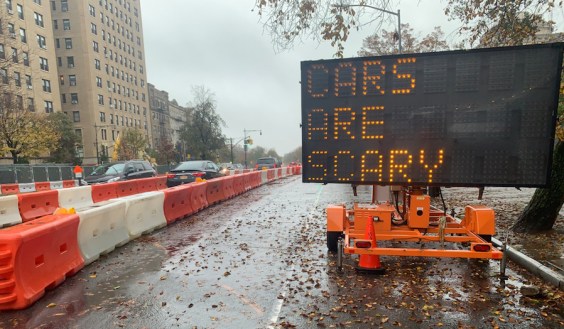Environmental Protection Agency (EPA) chief Lisa Jackson today told
House members that she would soon begin work on new auto fuel-efficiency
rules for the year 2017 and beyond, responding
to calls from carmakers searching for certainty -- and warily
eyeing the new fuel standards being crafted in California.
 (Photo: The
(Photo: TheWeekly Driver)
The political and legal jockeying that ultimately led the White
House to a deal on higher U.S. auto fuel standards began in California,
where stronger efficiency rules were adopted, shut
down by the Bush administration, and later
embraced by 13 other states.
Now, as the Golden State sets to work on its fuel standards for the
year 2017, the endpoint of the current White House efficiency rules,
clean energy advocates are
vowing to push California officials for the strongest possible auto
emissions limits. If California can set the stage for nationwide
progress on fuel-efficiency once, the theory goes, it can easily happen
again.
But not every California lawmaker is convinced that the state
should be a pioneer. At today's House Energy & Commerce Committee
hearing, Rep. Mary Bono Mack (R-CA) openly wondered whether California
should continue prodding the rest of the nation towards greater energy
efficiency -- a question equally
applicable to the state's law limiting broader carbon emissions.
After noting that she spoke as "a proud Californian," Bono Mack
asked Jackson, "If California changes their standards, are you saying we
all have to agree with their standards?"
Choosing her words carefully, Jackson told Bono Mack (one of only
eight Republicans to vote
in favor of last year's House climate change bill) that the Obama
administration's new fuel-efficiency rule "was the way to achieve smart
legislation.
"I don't think I can
simply say" whether California's environmental moves are certain to pave
the way for national action on emissions caps, Jackson added, "because
the trick of legislation will be to put [regulatory] authorities
together
in ways that get you [deals like] the clean car rule."
Jackson's cautious response came as she continues to
beat back bipartisan efforts in both chambers of Congress to block
the EPA from regulating greenhouse gas pollution in the absence of
legislative progress on the issue. Yanking the EPA's formal "endangerment
finding" on the public health effects of the changing climate,
Jackson told the House panel, "would forfeit one quarter of the
combined EPA-DOT program’s [auto] fuel savings and one third of its
greenhouse
gas emissions."





